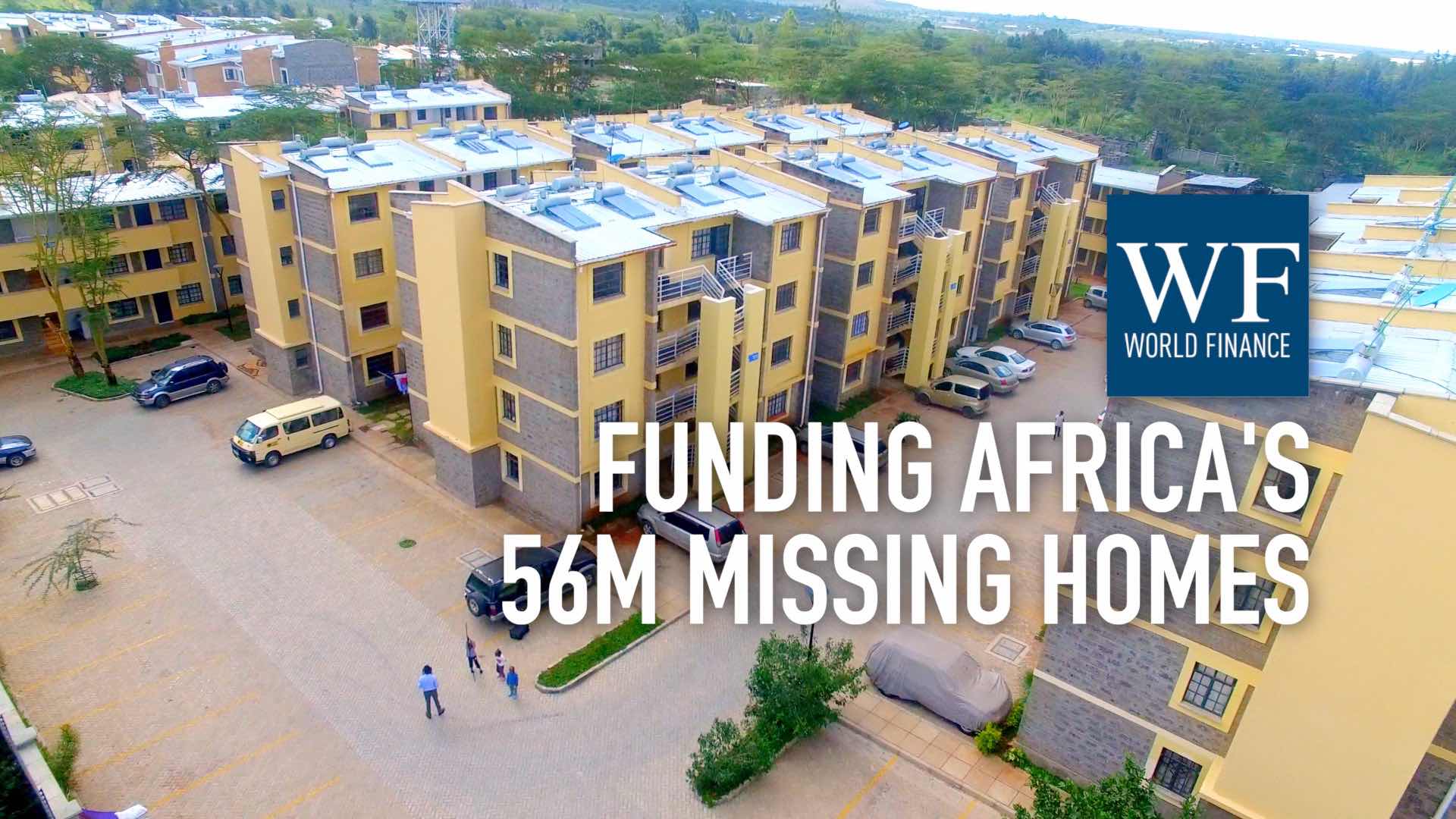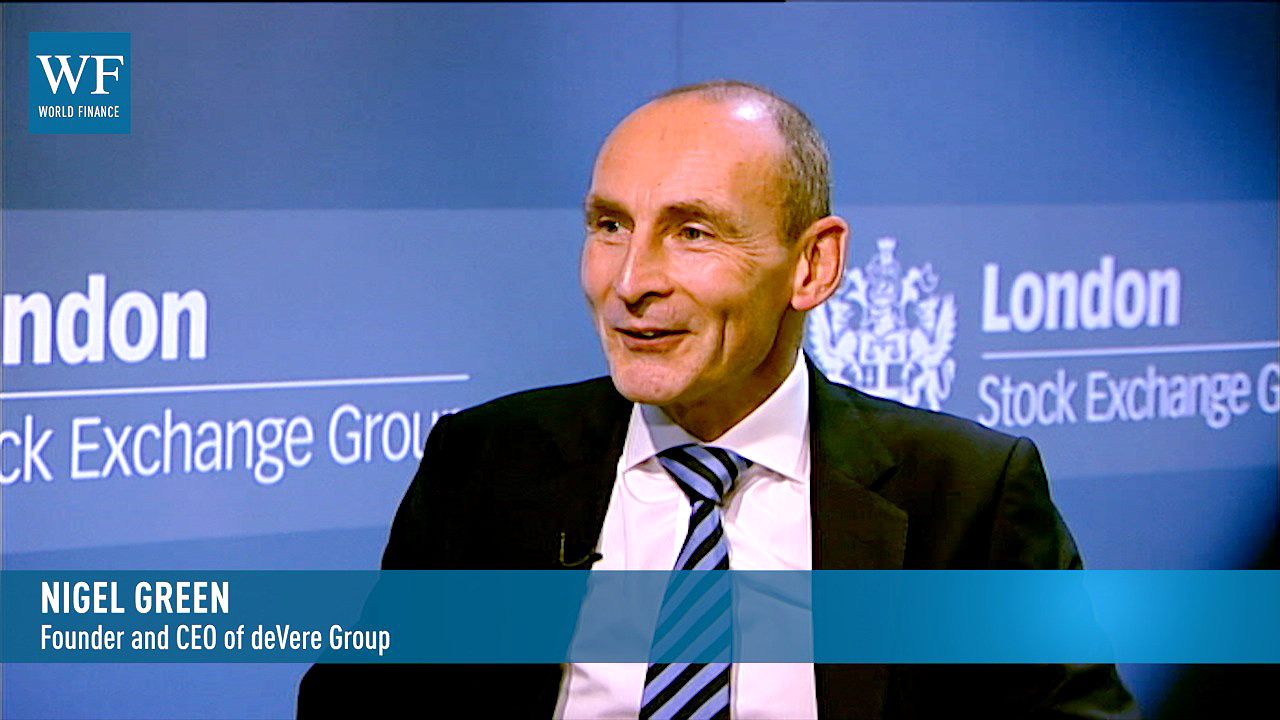AGF on shifting the African economy’s focus to SMEs
A flurry of commercial growth in the African continent continues with local infrastructure and regional bodies impacting on economic development
Related:
Transcript
African Guarantee Fund is the first continent wide guarantee fund. World Finance speaks to its CEO, Felix Bikpo, about how AGF is working to support SMEs in a banking system which is geared towards big business.
World Finance: First, can you tell me how African Guarantee Fund differs from other guarantee funds in the continent?
Felix Bikpo: African Guarantee Fund is the first continental guarantee fund. All the other used to be regional. We want to try to harmonise activity of the guarantee fund as much as we can, to have something that makes sense.
African Guarantee Fund is different also because it’s the first fund that was created based on the real need of the private sector, and SME sector. Most of them, they have created something for them, but they are not in line with their real need, and they are still struggling to get access to finance some things.
World Finance: Very interesting. How can you have a scalable impact across Africa?
Felix Bikpo: I like this question. At the end of the day, the most important thing is to know is if what you are doing has a real impact on the SMEs, on the African economy.
[T]he most important thing is to know is if what you are doing has a real impact on the SMEs, on the African economy
We at AGF are trying to put in place what we call the monitoring and evaluation system, to measure at each PLI, each bank, each financial institution with which we partner, to see how many SMEs we helped, how many jobs have been created, how this has an impact on each country.
So in answer to your question, give me one year and I can get back to you and give you a better answer.
World Finance: Of course, at times there are conflicting interests between lenders and the SME sector. Tell me, how have your AGF products helped to address this concern?
Felix Bikpo: I don’t like talking about conflicting interests. In fact, I don’t see that as a conflict of interest. It’s just a question of being able to address the issue.
The AGF products are tailored to address the major issue of access to finance for SME, to see if it is possible that the banking sector is able to give them the real financing that they need? Most of the time it is long term financing. The banking sector is ready to finance the short term, but don’t know how to finance the long term, because we don’t have enough long term resources.
So the product of AGF is trying to help this sector to transform the long term resources that we have in abundance to the long term to be able to address this issue.
World Finance: Now sovereigns of course play an important role in being able to access funds such as yours, do you think that sovereigns have done enough to increase this access for middle tier businesses?
Felix Bikpo: A lot of things have been done, but unfortunately there is a long way to go still.
Today, if you look at all the regulatory environments that we’re having in the banking system, it’s more for big business, for big enterprise. So we need maybe to start thinking of how to create something that is more for the SME, and not giving too much constraint to the banking system and others, and be ok to finance them without taking too much risk.
We’re starting to have some discussion with some regulatory bodies in Africa. We are trying to pilot some think tanks, and we believe that shortly something will come out and we’ll be able to ease the regulatory environment, not in the sense that it’s becoming worse, but in that it’s more adapted to the SME sector.
By investing, creating value, we are creating jobs. By creating jobs we are creating wealth, and we can tackle the poverty issues that we are facing
World Finance: Now foreign direct investment inflows to sub-Saharan Africa have been growing in the recent past. Questions have been raised as to whether these inflows are powering the right type of economic model. How do you respond to the argument that most of the FDI is geared towards consumption, thereby neglecting production?
Felix Bikpo: They are totally correct. Africa is growing because of all this FDI and we are happy for that. But this growth, fortunately or unfortunately, depending where you are – the agent is foreign business, and this is not creating production. We need to look at how, with these areas and the local resources also, we can invest and create value.
By investing, creating value, we are creating jobs. By creating jobs we are creating wealth, and we can tackle the poverty issues that we are facing. It’s our role as an African institution to help them say let’s direct these resources to the right sector, and for me the right sector is to create the production coming from the SME business, and this is where the future is.
World Finance: Finally Felix, what are some of the other key challenges that are unique to the SME sector in Africa?
Felix Bikpo: Unfortunately there are so many others, but let me just put these three areas.
The first one is infrastructure. We can have financing, ok, but if these SMEs don’t have the appropriate infrastructure, nothing will happen. If there are no roads to take my product to other cities, nothing will happen. So infrastructure, all types of infrastructure, is a key obstacle for the emergence of SMEs.
Access to market is also another issue. And the legal and regulatory environment has to be improved seriously. A lot of African governments are working on that, and a lot has been done, and we also need to help them to do a lot more.
World Finance: Felix, thank you so much for joining us.
Felix Bikpo: Thank you for the invitation.

 Africa’s 56 million missing homes: Shelter Afrique confronts the crisis
Africa’s 56 million missing homes: Shelter Afrique confronts the crisis deVere Group: Africa is ‘the next far east’
deVere Group: Africa is ‘the next far east’
